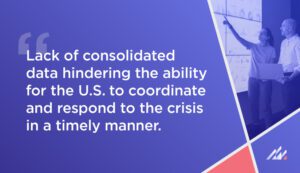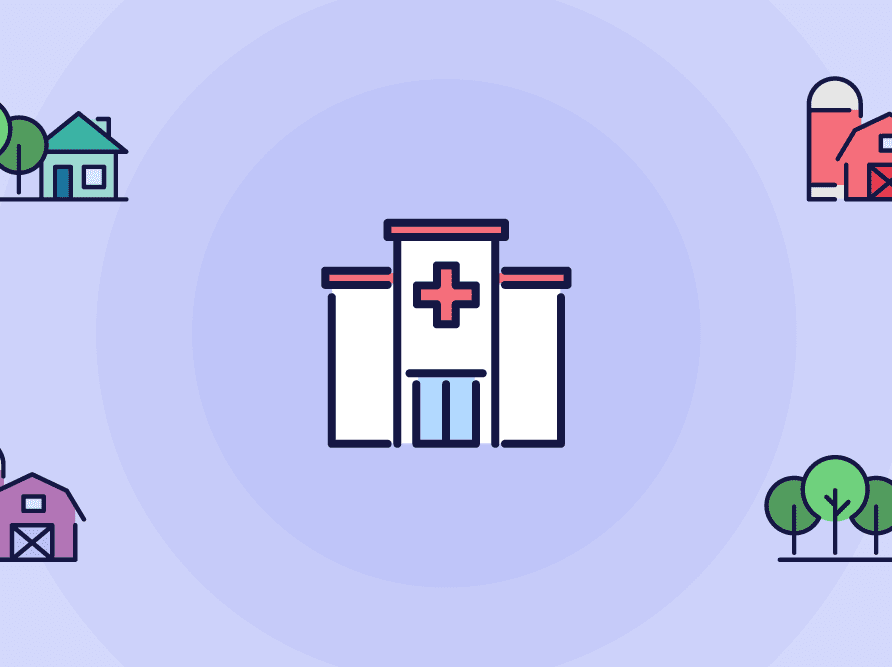Article
Addressing the Monkeypox crisis
Monkeypox, characterized by flu-like symptoms and pus-filled lesions, is the latest health emergency to sweep the globe in the past two years. In fact, Monkeypox marks the seventh global health emergency since 2007. Since infection started to spread, we’ve been fortunate in that the virus appears to be harder to transmit than COVID-19, requiring prolonged exposure to respiratory droplets and/or direct skin contact with the lesions. Additionally, those infected with Monkeypox aren’t contagious until they are symptomatic. This makes it much easier to know when to begin quarantining to prevent further infections. Also, unlike COVID-19, we aren’t starting from scratch when it comes to vaccination. Given that Monkeypox is not a novel virus, we already have an effective vaccine currently available in some areas.
 But for all the differences between Monkeypox and COVID-19, there is one stark similarity between these two public health emergencies: Lack of consolidated data hindering the ability for the U.S. to coordinate and respond to the crisis in a timely manner. Without consistent and concise reporting, it can be hard to know the actual number of cases, where the biggest outbreaks are occurring, what treatments are being used and where vaccines are needed the most. But if we know that data reporting was a huge problem in the early stages of the COVID-19 crisis, why is the same mistake being repeated for Monkeypox?
But for all the differences between Monkeypox and COVID-19, there is one stark similarity between these two public health emergencies: Lack of consolidated data hindering the ability for the U.S. to coordinate and respond to the crisis in a timely manner. Without consistent and concise reporting, it can be hard to know the actual number of cases, where the biggest outbreaks are occurring, what treatments are being used and where vaccines are needed the most. But if we know that data reporting was a huge problem in the early stages of the COVID-19 crisis, why is the same mistake being repeated for Monkeypox?
First, there is an extremely fragmented approach to reporting in the U.S. For example, during the initial waves of COVID-19, a large health system client of Altera Digital Health was reporting data to 18 different city, county, and state public health entities on a weekly or daily basis. To make matters worse, each entity collected different information, so the health system could not share one report with all parties. Complicating matters, patients may seek treatment from different providers or in multiple states that have varying privacy laws.
Second, once states have managed to gather a significant amount of data, they aren’t required to share their findings with federal agencies, such as the CDC. In fact, the COVID-19 pandemic was the first time data-use agreements were put into place between state and federal agencies. These agreements do not apply to Monkeypox. This means the CDC is lacking basic data, such as where the vaccine is being distributed; who has been vaccinated; and basic demographic information of patients infected with Monkeypox. Without this data, the U.S. response to the crisis is greatly hindered.
 To fix these problems, states have been offered congressional funding to invest in modernized health IT systems. Updated systems enable electronic health records (EHRs) to provide mechanisms for how data is labeled, categorized and exchanged. The resulting data harmonization would make it easier, faster and less costly to exchange and gather information. The CDC is also working to create new data use agreements for Monkeypox, however creating new data-use agreements on a case-by-case basis is not sustainable and broader legislation will be needed in the future.
To fix these problems, states have been offered congressional funding to invest in modernized health IT systems. Updated systems enable electronic health records (EHRs) to provide mechanisms for how data is labeled, categorized and exchanged. The resulting data harmonization would make it easier, faster and less costly to exchange and gather information. The CDC is also working to create new data use agreements for Monkeypox, however creating new data-use agreements on a case-by-case basis is not sustainable and broader legislation will be needed in the future.
At Altera, we are making investments in technologies that improve the ability for health systems to meet these new demands. In May, we released our first Platform of Health update with Sunrise Clinical Manager 22.1. It contains a brand-new layer of services and APIs that make data exchange more scalable through FHIR R4 standards, supporting our evolution to a digital services company. This was followed by advances in our analytics solution updated in July. With Altera Clinical Performance Management’s updates in July 2022, we now offer a richer experience using the Microsoft Power BI Report Server, with multiple enhancements to modernize report design and simplify configuration requirements. While these capabilities do not decrease the overall burden of emerging threats, they accelerate how health systems can collectively contribute to understanding these challenges and their solutions.













